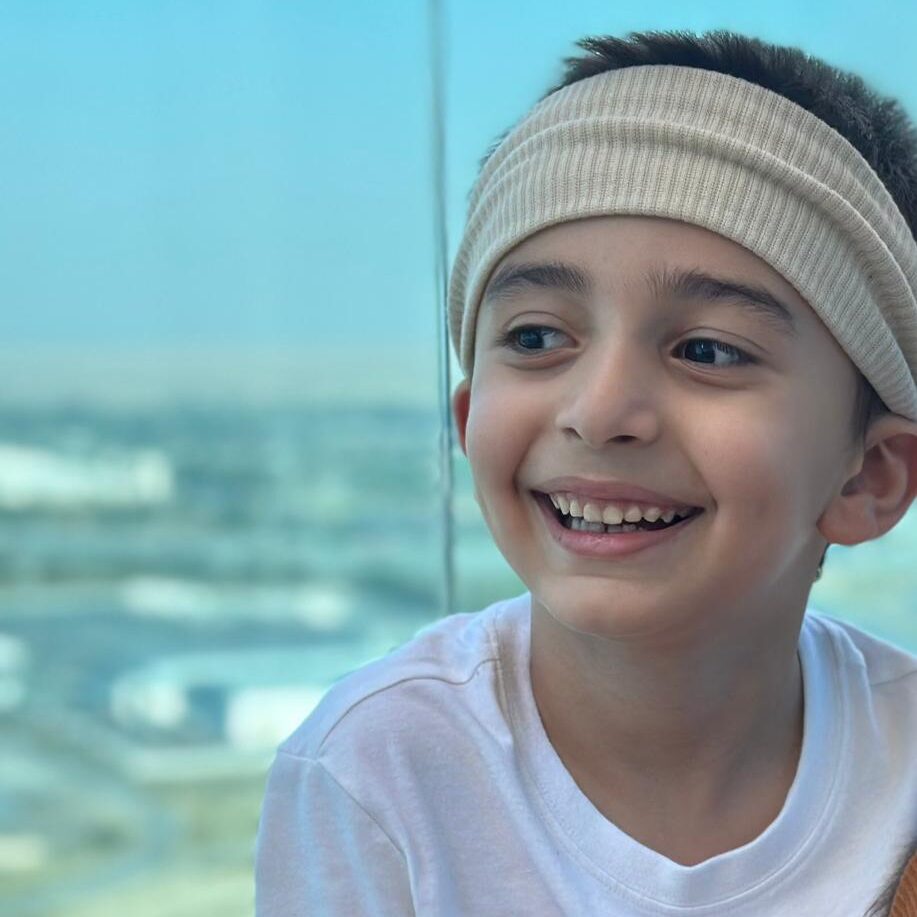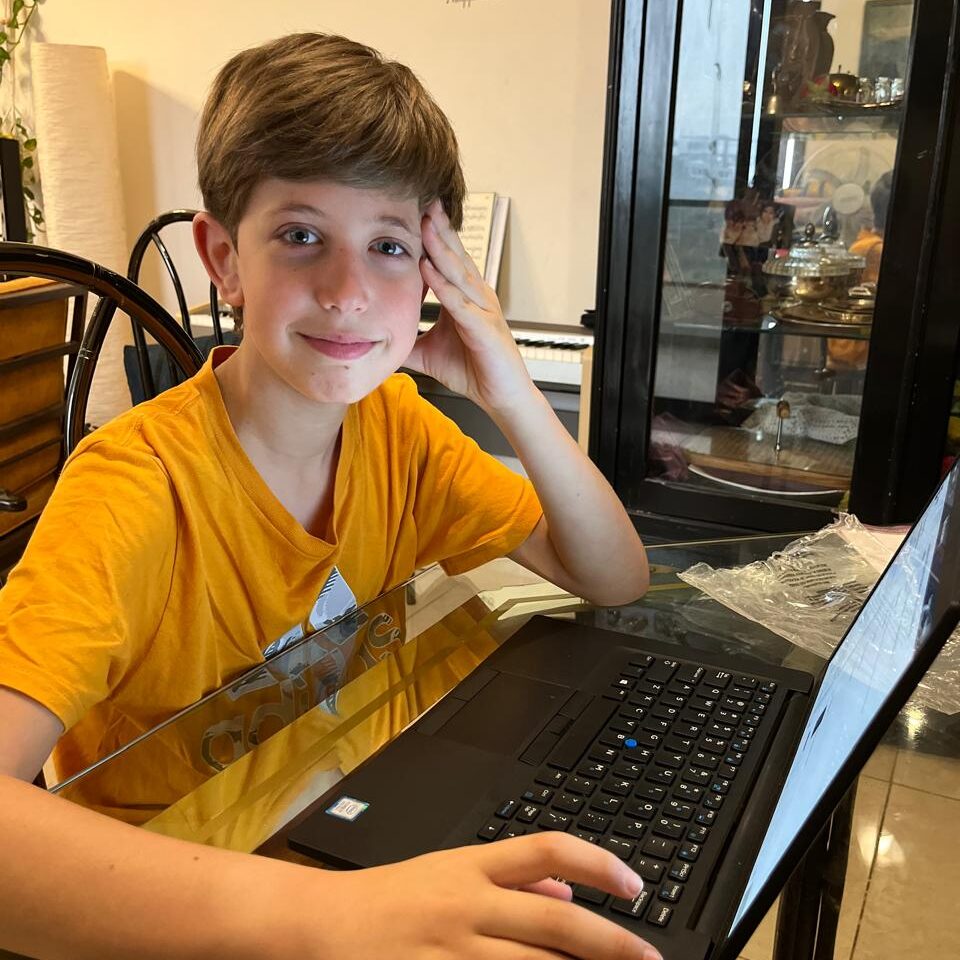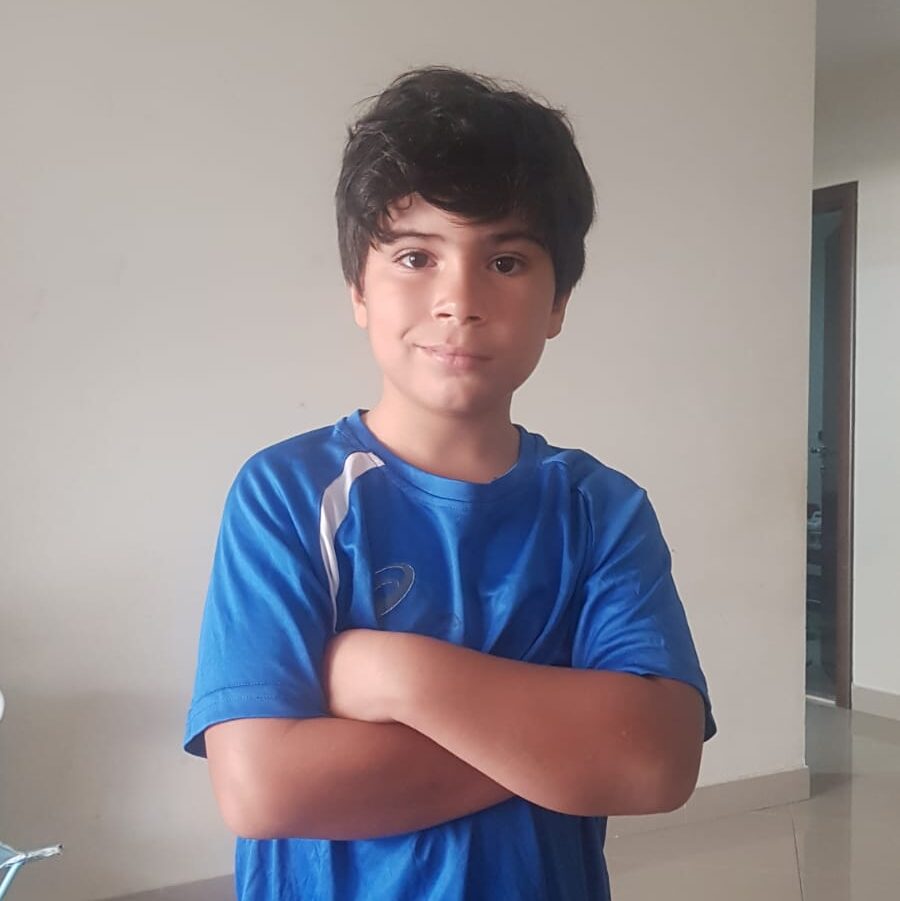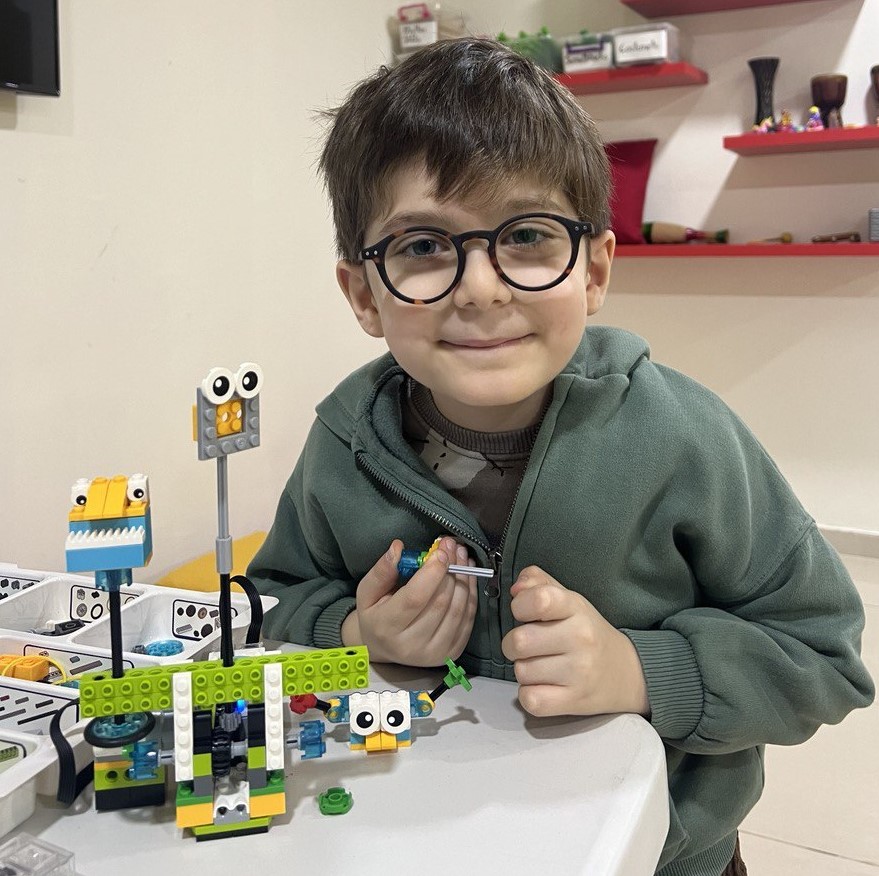Teach your child the skills to thrive!
- Live online tech classes
- Accredited and Personalized Curriculum
- Google Certified Instructors

Our services
We Teach
Artificial Intelligence
Web Development
Game Development
Robotics
App Development
Minecraft & Roblox
Our Value
Why RobotX?
At RobotX we take pride in our team of professionals that are revolutionizing the way your child learn Coding and 21st century essential skills!
Personalized Courses
Google Certified Instructors
STEM.org USA Accredited

How It Works?
Registered Students
Hours Delivered
Projects Completed
Parents, trust us
Students
Our RoboStars





Our courses
Pick your child's age
Creative Coding
Introduction to basic coding concepts on Code.org through engaging activities. Kids will learn sequences, loops, and conditionals using drag-and-drop programming. They’ll create simple projects like interactive stories and basic games.
Building on basic concepts, children will create more complex projects and animations on Kano Code. They will explore advanced loops, conditionals, and simple functions, enhancing their understanding of programming logic.
Advanced block coding where kids will develop their own games and interactive stories on Tynker. They will incorporate sophisticated logic, variables, and events, and begin to understand debugging and optimization.
Game and Story Telling
Basics of storytelling and animation on ScratchJr. Kids will create simple stories and games, learning about characters, backdrops, and basic event-triggered actions. They’ll focus on sequencing and animating their characters.
Enhanced storytelling with multiple characters and interactions on ScratchJr. Your child will sequence multiple scenes, add complex interactions, and start to use loops and basic conditionals in their stories.
Mastery of Scratch Jr with intricate storylines and multiple scenes. Kids will incorporate advanced loops, conditionals, and debugging techniques to refine their projects.
Application Development
Introduction to app development focusing on the user interface, basic event handling, and creating simple apps on Bitsbox. Students will learn to design app screens and implement basic functionalities like buttons and text inputs.
Intermediate app development where students use variables, data storage, and create multi-screen apps on App Lab. They’ll explore more complex interactions and learn to manage data within their apps.
Advanced app development incorporating complex logic, API integration, and data manipulation. Students will create fully functional apps that solve real-world problems and can be shared with others.
Scratch Developer
Basics of game design including sprites, backdrops, and simple game mechanics on Scratch. Students will create basic games, learning to control characters and develop simple interactions.
Developing more complex games with variables, advanced events, and multi-level structures. Students will enhance their games with scoring systems, health meters, and more sophisticated gameplay elements.
Mastery of Scratch for game development. Students will create sophisticated games with advanced logic, user inputs, and complex interactivity. They’ll learn to debug and optimize their games for better performance.
Game Development
Game Development
Advanced game design using Minecraft’s education tools. Students will code within Minecraft, design complex game scenarios, and collaborate on building projects, enhancing their creativity and problem-solving skills.
Basics of 2D game development including game mechanics, sprites, and basic game logic. Students will create simple 2D games, learning to design levels and control characters.
Creating games on the Roblox platform with Lua scripting. Students will develop 3D game environments and learn to script game mechanics and interactions, focusing on multiplayer functionality.
App Development
Basics of web development including the structure and styling of web pages. Students will learn HTML to create page content and CSS to style their pages, creating simple, static websites.
Building more complex web layouts, advanced CSS styling, and introducing JavaScript for interactivity. Students will create dynamic web pages with interactive elements like buttons and forms.
Full-fledged websites with responsive design, advanced JavaScript functionalities, and back-end integration. Students will learn to create user-friendly, dynamic web applications.
Robotics
Introduction to robotics through the VEX platform. Students will learn the basics of robot construction, including mechanical design and simple programming using the VEXcode software. They will build and program robots to perform basic tasks and challenges, gaining foundational knowledge in robotics engineering and coding.
Students will explore more complex robotics projects, integrating sensors and actuators. They will learn to program the Micro
using MakeCode, creating robots that can interact with their environment and respond to various inputs, enhancing their problem-solving and engineering skills.
Advanced robotics with the Arduino platform. Students will dive into sophisticated robotics projects, focusing on hardware-software integration and advanced programming. They will learn to design and build robots with complex behaviors, using a variety of sensors, motors, and communication modules. This level emphasizes creativity, innovation, and the application of robotics to real-world problems.
Web Development
Basics of front-end and back-end development including HTML, CSS, JavaScript, and basic server-side programming. Students will create simple web applications with both client-side and server-side components.
More advanced web applications, databases, and server management. Students will learn to create dynamic web applications with database integration and user authentication.
Building complex, scalable web applications with modern frameworks and tools. Students will learn advanced topics like RESTful APIs, server-side rendering, and cloud deployment.
Artificial Intelligence
Basics of Python programming and an introduction to AI, including simple machine learning models. Students will learn Python syntax, data types, and basic AI concepts like classification and regression.
Building more complex models, data analysis, and practical AI applications. Students will work with libraries like NumPy, pandas, and scikit-learn to create and evaluate machine learning models.
Deep learning, neural networks, and advanced AI projects. Students will use libraries like TensorFlow and Keras to build and train deep learning models, working on projects like image recognition and natural language processing.
Game Development
Introduction to game development with Unity, including basic 3D modeling, game mechanics, and scripting. Students will create simple 3D games, learning the fundamentals of game design and development.
More advanced game design, incorporating physics, AI, and complex interactions. Students will create more sophisticated games with advanced gameplay elements and AI-driven characters.
Developing sophisticated games with multiplayer functionality, advanced graphics, and optimization techniques. Students will learn to create professional-quality games with complex mechanics and networked multiplayer capabilities.
Choose your Path
Pricing Plans
1 Level
3 Months
$240
- %
- 12 Live Classes
- Personalized Training
- 1 Class Freeze
- Final Project
- Certificate Of Completion
2 Levels
6 Months
$480
- %
- 24 Live Classes
- Personalized Training
- 2 Class Freezes
- 2 Final Projects
- Certificate Of Completion
3 Levels
9 Months
$540
save 30%
- 36 Live Classes
- Personalized Training
- 4 Class Freezes
- 3 Final Projects
- Certificate by STEM.org USA
FAQ's
Popular Questions
Our instructors are highly qualified and experienced in teaching coding and robotics to kids. They have educational backgrounds in computer science, engineering, or related fields, and undergo extensive training and professional development to ensure they can deliver the best possible learning experience to our students.
No prior experience is required! We offer courses for beginners as well as more advanced students, and our instructors will work with each child individually to ensure they are learning at the appropriate level for their skill set.
We use the latest technology and equipment to ensure our students have access to the best resources for learning. This includes robotics kits, VR sets, and cutting-edge software and programming languages.
At RobotX, we teach a range of valuable skills in the fields of robotics and coding. Depending on the program, your child may learn programming languages such as Scratch, Python, and Java, as well as robotics concepts such as circuitry, mechanics, and programming robots. Our programs also help children develop important skills such as problem-solving, critical thinking, and creativity.
We offer programs for children and teenagers of all ages, from 5 to 18 years old. We have programs specifically designed for ages 5-7, ages 8-10, ages 11-13, and ages 14+.
Our instructors are highly qualified and experienced in the fields of robotics and coding education. All of our instructors have extensive knowledge and experience in teaching children and teenagers, and they undergo regular training to ensure that they are up-to-date with the latest teaching methods and technologies.


